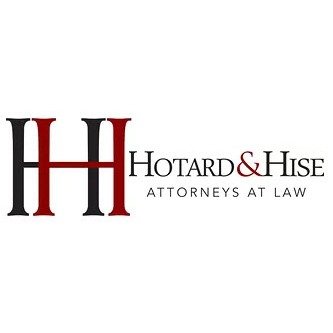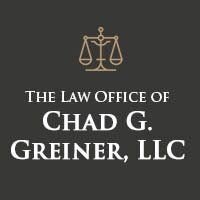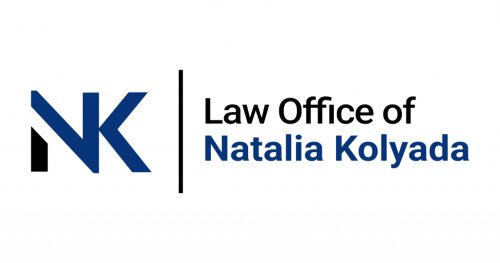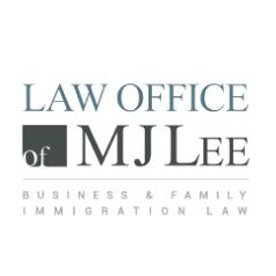Best Adoption Lawyers in Georgia
Share your needs with us, get contacted by law firms.
Free. Takes 2 min.
Free Guide to Hiring a Family Lawyer
Or refine your search by selecting a city:
List of the best lawyers in Georgia, United States
About Adoption Law in Georgia, United States
Adoption in Georgia is a legal process that establishes a permanent parent-child relationship between individuals who are not biologically related. This process severs the legal rights and responsibilities of the biological parents (unless a stepparent adoption is occurring) and grants those rights to the adoptive parent(s). Georgia provides several types of adoption, including agency adoptions, independent adoptions, stepparent adoptions, and relative adoptions. The courts oversee each adoption to ensure all legal requirements are met and that the adoption is in the best interests of the child.
Why You May Need a Lawyer
Adoption law can be complex, and it is often in your best interest to seek guidance from a qualified attorney. A lawyer can help:
- Navigate the state-mandated requirements and paperwork
- Ensure biological parents’ rights are properly terminated
- Represent you in court hearings and advocate for your interests
- Handle interstate or international adoption cases
- Address contested adoptions or disputes with biological parents or agencies
- Assist with open or closed adoption agreements
- Clarify your rights as a stepparent, grandparent, or relative seeking to adopt
- Ensure compliance with Georgia adoption laws and timelines
Local Laws Overview
Georgia’s adoption laws are governed by Title 19, Chapter 8 of the Georgia Code. Key points include:
- Who can adopt: Any adult who is at least 21 years old, or married and living with their spouse, may petition to adopt in Georgia. The petitioner must be at least ten years older than the person to be adopted (unless a stepparent or relative adoption).
- Consent requirements: Biological parents must voluntarily surrender their rights or have their rights terminated by the court. Children aged 14 or older must also consent to their adoption.
- Home study: Families are generally required to undergo a home study to assess their fitness for adopting, except in some stepparent and relative adoptions.
- Types of adoption: Georgia law recognizes agency adoptions (through licensed agencies), independent adoptions (direct agreement between parties), stepparent adoptions, and relative adoptions.
- Finalization: The adoption is finalized in court, and a new birth certificate is issued naming the adoptive parents.
- Revocation period: A biological parent has four days after signing surrender documents to revoke their consent unless the court waives this waiting period for good cause.
Frequently Asked Questions
What are the different types of adoption available in Georgia?
In Georgia, you can pursue agency adoptions, independent (private) adoptions, stepparent adoptions, and relative adoptions. Each has unique requirements and processes.
Who is eligible to adopt a child in Georgia?
Anyone who is at least 21 years old (or married, regardless of age) and at least ten years older than the child is eligible. The person must also have lived in Georgia for at least six months prior to filing.
Do I need to be married to adopt in Georgia?
No, single individuals, as well as married couples, can adopt in Georgia.
Does Georgia allow same-sex couples to adopt?
Yes, same-sex couples and individuals are permitted to adopt in Georgia.
What is a home study and is it required?
A home study is an assessment of your home life, finances, background, and motivation to adopt. It is generally required for all adoptions except certain stepparent and close relative adoptions.
How long does the adoption process take in Georgia?
The adoption process varies but usually takes several months to over a year, depending on the type of adoption, court schedules, and whether there are any complications.
Do biological parents have any rights after the adoption?
Once an adoption is finalized, biological parents’ rights are terminated. They no longer have legal obligations or rights concerning the child.
Can the adoption be open or closed?
Yes, adoptions in Georgia can be open (with agreed-upon contact between birth and adoptive families) or closed (with no contact or information shared), depending on the agreement and the best interests of the child.
What happens if a biological parent contests the adoption?
If a biological parent contests, the court will schedule a hearing to determine if the adoption is in the child’s best interests and whether parental rights should be terminated.
Is financial assistance available for adopting in Georgia?
Some programs, especially when adopting from foster care, offer financial support and subsidies. Private adoptions typically require out-of-pocket expenses which can vary significantly.
Additional Resources
- Georgia Department of Human Services - Division of Family and Children Services (DFCS): Oversees foster care and public adoptions in Georgia.
- Georgia Center for Resources and Support: Provides training, support, and resources to adoptive families.
- Court Appointed Special Advocates (CASA) Georgia: Offers support and advocacy for children involved in the foster care and adoption system.
- Children’s Bureau (U.S. Department of Health and Human Services): Offers national information and resources about adoption.
- Local Adoption Agencies: Georgia has several licensed public and private adoption agencies that can assist with the adoption process.
Next Steps
If you are considering adoption in Georgia, start by educating yourself about the process and requirements. Determine the type of adoption that best fits your situation. Consult with a licensed adoption agency or contact the Division of Family and Children Services for public adoptions.
Seeking guidance from an experienced adoption attorney can help you understand your rights and responsibilities while ensuring you comply with all Georgia laws and procedures. An attorney can advise you on preparing documentation, home studies, and court appearances.
To move forward, gather your necessary documents, complete any required training or home studies, and reach out to a legal professional or agency for a consultation. Careful preparation and expert guidance can make your adoption journey smoother and more successful.
Lawzana helps you find the best lawyers and law firms in Georgia through a curated and pre-screened list of qualified legal professionals. Our platform offers rankings and detailed profiles of attorneys and law firms, allowing you to compare based on practice areas, including Adoption, experience, and client feedback.
Each profile includes a description of the firm's areas of practice, client reviews, team members and partners, year of establishment, spoken languages, office locations, contact information, social media presence, and any published articles or resources. Most firms on our platform speak English and are experienced in both local and international legal matters.
Get a quote from top-rated law firms in Georgia, United States — quickly, securely, and without unnecessary hassle.
Disclaimer:
The information provided on this page is for general informational purposes only and does not constitute legal advice. While we strive to ensure the accuracy and relevance of the content, legal information may change over time, and interpretations of the law can vary. You should always consult with a qualified legal professional for advice specific to your situation.
We disclaim all liability for actions taken or not taken based on the content of this page. If you believe any information is incorrect or outdated, please contact us, and we will review and update it where appropriate.
Browse adoption law firms by city in Georgia
Refine your search by selecting a city.














